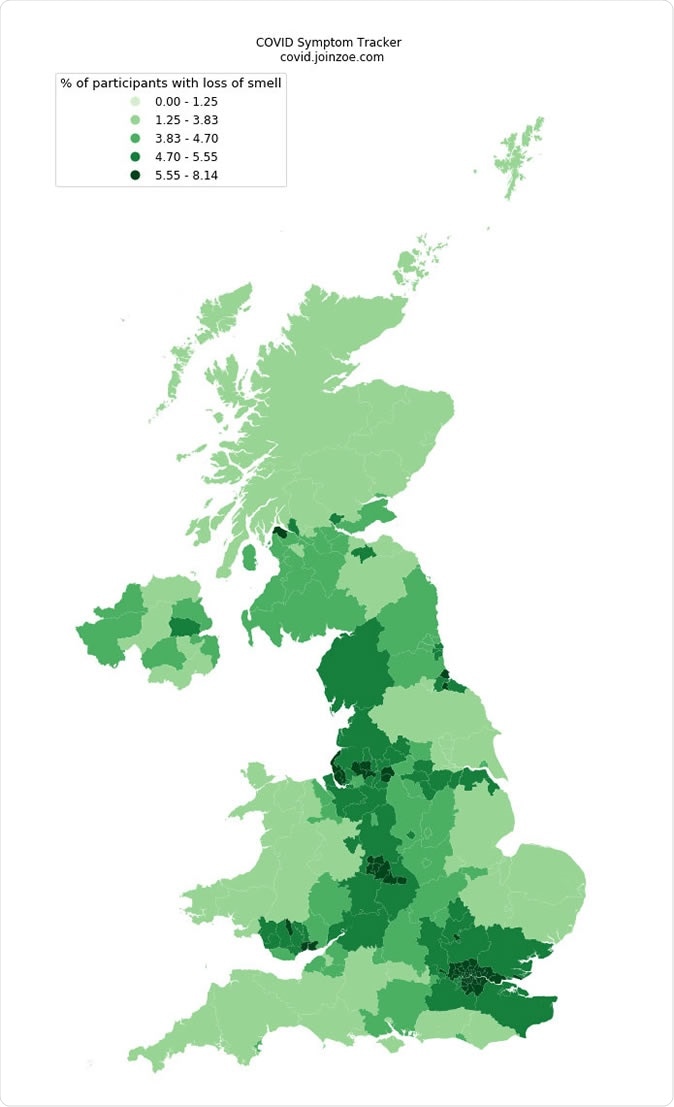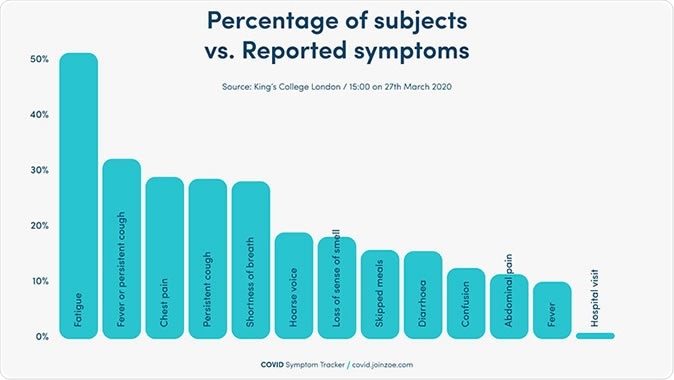The most common signs and symptoms of coronavirus disease (COVID-19) include fever, dry cough, and difficulty of breathing. But patients who were infected recall another bizarre symptom tied to the coronavirus infection – loss of smell.
Doctors from across the globe are reporting cases of patients with COVID-19 who experienced anosmia, or the loss of their sense of smell and others lose their sense of taste or ageusia.
In the latest report based on the data gathered from the COVID Symptom Tracker app suggests that one symptom tied to coronavirus infection is losing one’s sense of taste and smell. The app, which was developed by scientists at King’s College London as part of a Twins UK study, focuses on determining the symptoms most experienced by patients diagnosed with coronavirus disease.
App symptoms tracker
The app was downloaded by about 1.5 million users between Mar. 24 and 29. Based on the analysis of the data gathered by the app, about 26 percent of all users reported one or more symptoms. About 1,702 of the users had the coronavirus test, where 579 people tested positive, and 1,123 had negative results.
Among those who tested positive with COVID-19, 59 percent had experienced the loss of smell and taste. In fact, the symptoms can be a predictive factor in diagnosing COVID-19, or in having the person get a test, than self-reported fever. Fever can be caused by a variety of factors, unlike the loss of smell and taste, which were seen in previous coronavirus outbreaks.

With all the information gathered by the users, the team developed a model to determine which combination of symptoms could predict positive COVID-19 cases. The team found that the most reliable predictor is the loss of smell and taste. Other symptoms of COVID-19 include fever, fatigue, persistent cough, loss of appetite, and abdominal pain. In some instances, people experience gastrointestinal symptoms, such as diarrhea.
Further, the team found that nearly 13 percent of about 400,000 people reporting symptoms who had not yet been tested for COVID-19 are more likely to be infected by the virus, which means an extra 50,000 people are likely to have COVID-19 but have not been confirmed yet.
The app was developed by King’s College London scientists, in partnership with the Guy’s and St. Thomas’ NHS Foundation Trust, a healthcare start-up called ZOE Global LTD, and the NIHR Biomedical Research Center. The app’s aim and purpose are to help researchers understand how the virus spreads, the progression of COVID-19, and how many people have symptoms.

Loss of smell
Loss of smell happens with the common colds and other viral infections, especially those affecting the nose and throat. Reports from doctors who handled patients with coronavirus say that the loss of smell may be one of the first symptoms of COVID-19. In fact, doctors have reported that up to 70 percent of patients who tested positive for the coronavirus experience anosmia and ageusia.
Some countries affected, such as Iran, China, Italy, Germany, and France have all reported cases of the coronavirus disease where patients reported a temporary loss in their sense of taste or smell. Both symptoms were found in many patients, even in the absence of other symptoms.
Public Health England has received reports about anosmia as an early sign of COVID-19 infection. Hence, health officials urged health care personnel always to employ full personal protective equipment (PPE) when dealing with patients, especially if they report anosmia as a symptom.
“This primary research is only possible thanks to the 1.8 million citizen scientists logging their symptoms every day. This also gives us an evolving map of the UK of where symptoms are occurring two to three weeks before a strain on the NHS, which is why it’s vital to continue logging your health and symptoms, even when you feel completely healthy, and encourage others to use the app,” Professor Tim Spector, lead researcher, said.
Further research is needed to definitively show how our sense of smell is affected by COVID-19. Still, it appears that anosmia may signal an infection.